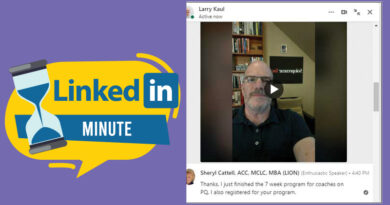Caroline Shin Leading Vacatia to a Bright Future
You’ve seen the steady flow of news from Vacatia Inc., a leading provider of innovative, customer-centric solutions for timeshare resorts. Founded in 2013, Vacatia has more than 750 industry partners (including many of the largest timeshare developers) using its rental and resale services. Just two years ago, it debuted Vacatia Partner Services to provide resort management, rentals, and other services to independent resorts, it has since grown its property management services to 4,750 units in eight states.
Leading the charge has been CEO and co-founder Caroline Shin, who has a record of building companies that embrace technology to deliver a stellar customer experience. Past positions include being the lead website architect on the startup team at Hotwire, leading global CRM and revenue management functions at Starwood Hotels and Resorts, and as senior VP at Sentient Jet, she oversaw client services and command center operations, launching a new technology platform for flight management.
To find out what makes Shin tick – and what her vision is for the resorts, owners, and renters Vacatia serves—Resort Trades recently posed the questions our readers want the answers to.
RT: You have a degree in nuclear engineering from the Massachusetts Institute of Technology. How did that prepare you for your career today?
CS: Learning engineering, particularly nuclear engineering, but really any kind of technology field makes you sharper at problem-solving. I’ve always been the more pragmatic person–some might say impatiently–and I love using tech to solve real-world problems. Of course, working on cold fusion is cool, too. But, when I got out of school, I saw that there were these are tangible things I could do right then, where I could see the results pretty quickly. I was also lucky, coming out of college when the Internet was starting to get really hot. Then the Internet changed how the world and business work together, so I had really good timing on that front.
RT: What was your first exposure to the timeshare industry?
CS: I was working at Starwood Hotels in the early to mid-2000s, and Starwood had recently acquired Vistana Resorts. I think it’s interesting to note that a lot of the work that we were doing at Starwood to try to push hotels forward, especially with the use of technology, wasn’t implemented in the timeshare division. And while the products are different, in hindsight, I wish we did, because the timeshare industry, although we’re catching up now, we lagged some of the innovations in the hotel industry.
RT: What made you want to get involved in the timeshare industry?
CS: I was reintroduced to it with the team that started Vacatia, and I remembered just how awesome the actual timeshare experience is. Having all that space, which is now almost a given with the popularity of Airbnb, but also the services, which I don’t want to give up by going to some random dude’s house. The industry has everything we need to be primed for growth.
RT: What made Vacatia expand from serving primarily large developers to also serving independent resorts and their owners?
CS: We had created technology for both resales and rentals and were working with many of the big developers. Then we started talking to independent resorts, and they loved the concept because they needed help on both fronts, but they didn’t have the resources to integrate with our technology platform through an API. At first, we started rolling up our sleeves to help our first independent resort partners, then we asked, how do we scale this? We soon realized this wasn’t a one-off thing. Independent resorts needed more hands-on help than just a technology spec of how to integrate into our rental and resell platform. From our side, we got really excited about the ability to have contact with consumers throughout their entire journey. Let’s help consumers discover the resort, book the actual stay and then follow through during and after the stay. Taking on these challenges made us increase our velocity of innovation, and we wanted to share those innovations with more resorts.
RT: What did you learn from your conversations with resort managers and board members at these resorts?
CS: They want collaboration and honesty, even if it’s a tough conversation. They want us to respect the past and respect their owners, but also help them innovate while holding on to what makes the place so special for long-term owners. When you provide clear options along with your recommendations, board members appreciate that. And owners do too. There aren’t a lot of problems we can’t solve together.
RT: You’ve spoken about the independent charm of these resorts. What do you mean by that?
CS: These resorts are not just faceless hotels. Let me give an example. We had a resort that hadn’t really done rentals, but they needed the revenue to cover their expenses. While most owners were ecstatic that we were able to rent out units, some thought it would ruin the property’s culture. We provided the numbers and the facts, but we also changed the narrative. We said, instead of thinking of rental guests as competitors, think of this as a chance to introduce them to this beautiful resort. Our staff will blow their socks off with the service they provide, but you, the owners are the best ambassadors for this resort. Think about it as welcoming them into private club membership. Just as we were talking about it, a renter walked over and asked for advice about the area (New Orleans). Then all the owners started writing down lists and gave them tips from what they had learned coming there for 20 or 30 years. It was just awesome.
Every resort has its own culture; on Tuesdays, we do this, and on Fridays, we do that. They may all know each other because they have been coming on the same week for 20 years. Sometimes, I think we should do a coffee table book for each resort that has the stories they share every day.
RT: What’s the biggest challenge facing these resorts?
CS: it starts with appealing to a younger audience. We shouldn’t have kids or grandkids or nephews and nieces not wanting to inherit a timeshare. We need to get the product in a place where the flexibility, ease of booking, and costs convince the younger generation that it’s worth it.
RT: Is there a guiding philosophy for working with resorts?
CS: We have a saying, ‘don’t make anyone feel like they’re in the middle seat.’ You know that feeling you get when you’re in the middle seat in the back row? You don’t want people feeling that way when it comes to their vacations.
RT: What makes Vacatia the right company to assist these resorts?
CS: I respect our competitors, so I wouldn’t say we’re the only one. Our strengths are the diversity of our team. We have diverse viewpoints and experience to solve some of the challenges that independent timeshare resorts are facing, No. 2, it’s the passion that we have for this business, which can make long days and hard problems, not a chore. And No. 3, it’s our values and one of them that we practice every day is to never be satisfied…there’s always a better way.
RT: And what is your vision for Vacatia in the years ahead?
CS: To help independent resorts thrive, while also leading the entire travel industry is rethinking how families vacation.
RT: So, at the end of those long days, do you have any hobbies?
CS: Yes, I love fishing, and I love to be outdoors. It just gets you to clear your mind and forget about everything. I also really enjoy my furry kids, and I even own a pet grooming store.
RT: What kind of pets do you have?
CS: My dogs are Charlie, a toy poodle, and Chloe, who is a mutt. We did a DNA test on her, and she has like eight different breeds. But you know, even the pet grooming store comes down to problem-solving. My area, Marin County, California, has one of the highest pet ownership rates in the country, and I couldn’t find a groomer. I just decided to create my own. So now my pets are the proud owners of their own grooming store.
Judy Kenninger (linkedin.com/in/judykenninger) heads Kenninger Communications and has been covering the resort real estate industry for nearly two decades.



